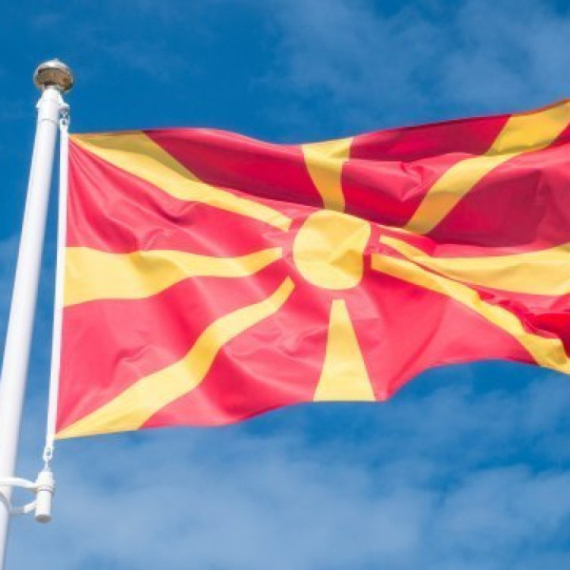Ex-UN official claims EULEX operations are illegal
Former UN Regional Representative in Kosovska Mitrovica Gerard Gallucci has said that the EULEX operations are illegal.
Tuesday, 27.09.2011.
14:34

Former UN Regional Representative in Kosovska Mitrovica Gerard Gallucci has said that the EULEX operations are illegal. He also added that the northern Kosovo issue could not be solved with military actions. Ex-UN official claims EULEX operations are illegal “The first myth that apparently still needs busting: that there is a military/police solution to the northerners refusal to accept rule by Pristina,” he explained. “In March 2008 this failed and it has failed again. Not even placing a large occupying force on every road and town center can compel people to give up institutions they view as their own and to accept those they find illegitimate. NATO never had the stomach for this but let itself be used by the U.S. to back up Thaci's politically motivated effort to steal the north. KFOR's support for Pristina's trade embargo was, and remains, illegal under its UNSCR 1244 mandate. And it has not worked; there remains no solution to the north through use of force,” Gallucci pointed out. The former UN officials said that the next myth was that criminals were forcing the northern Kosovo Serbs to refuse the benefits of being ruled by the majority-Albanian government in Pristina. “The Serbs have been holding weddings, classes and parties on the barricades. They have been peaceful but insistent. They blocked the northern Gates while building a new boundary along the Ibar River on main roads crossing the line to the majority-Albanian south. But the “hoodlum” myth remains dangerous as even now Thaci is using it to justify his call to impose a Kosovo court in north Mitrovica. Hopefully, KFOR and EULEX will not rise to this provocation,” he noted. “The next busted myth is that EULEX is acting legally in seeking to impose Kosovo customs in the north. It claims that treating Kosovo as one customs zone and the agreement on customs stamps agreed to early this month means it can support establishment of Kosovo customs in the north and collection of fees to be sent to Pristina,” Gallucci continues. “Some argue that EULEX's mandate includes helping develop the Kosovo state. But the UN passed EULEX responsibility for rule of law in November 2008 with the condition it be status neutral. Whatever customs regime might be established, it would have to meet that condition. Imposing Kosovo customs and officials and collecting funds for Pristina clearly would not,” the U.S. diplomat underscored. “And any agreement on customs stamps between Belgrade and Pristina does not ipso facto allow EULEX to apply it where Belgrade and the local Serbs refuse to accept it,” he added. According to Gallucci, the final myth is that the Quint and Pristina’s “effort to seize the north is legal as it enforces a Kosovo state and constitution that the ICJ found legal and that Serbian ‘parallel’ institutions are illegal under UNSCR 1244”. “The ICJ never said that the Kosovo declaration of independence or state were ‘legal.’ It said that there was nothing in international law on the subject and noted that the Pristina UDI was made outside the ambit of UNMIK. The ICJ did reaffirm the continued legality of UNMIK. One could argue that Kosovo independence and institutions are a fact – they are – but not that they were found legal by the ICJ. Under international law, UNMIK remains the official administrative authority for Kosovo. Any other institutions are therefore parallel to it. But in the north, the local institutions fly under the UN flag, south of the Ibar River they don't. Some are therefore more ‘parallel’ than others,” the former UN official pointed out. He believes that the situation in northern Kosovo “may have stabilized, at a point not quite back to July 25 but substantially much the same.” “It can be said that the Quint/Thaci effort to change the situation on the ground in the north by bringing the Serbs to accept rule from Pristina has failed. While the local Serbs have certainly been affected by the moves by KFOR and EULEX to isolate them from Serbia proper and impose Kosovo customs at the northern Gates, their resistance in the form of peaceful protest and barricades has stalled the Quint effort to make them accept the Kosovo state,” Gallucci explained. “EULEX has not backed away from its plan to impose Kosovo customs at the northern crossings. But as the locals have blocked these, there is nothing for customs officials to do. The Serbs appear able to find ways to cross the boundary quicker than KFOR can close them. KFOR may be tiring of chasing down trucks and providing helicopter service for Gate workers. The new, perhaps more sensible, KFOR commander reportedly is urging a political approach to resolving the current crisis rather than looking for military solutions,” the former UN official concluded. (Tanjug)
Ex-UN official claims EULEX operations are illegal
“The first myth that apparently still needs busting: that there is a military/police solution to the northerners refusal to accept rule by Priština,” he explained.“In March 2008 this failed and it has failed again. Not even placing a large occupying force on every road and town center can compel people to give up institutions they view as their own and to accept those they find illegitimate. NATO never had the stomach for this but let itself be used by the U.S. to back up Thaci's politically motivated effort to steal the north. KFOR's support for Priština's trade embargo was, and remains, illegal under its UNSCR 1244 mandate. And it has not worked; there remains no solution to the north through use of force,” Gallucci pointed out.
The former UN officials said that the next myth was that criminals were forcing the northern Kosovo Serbs to refuse the benefits of being ruled by the majority-Albanian government in Priština.
“The Serbs have been holding weddings, classes and parties on the barricades. They have been peaceful but insistent. They blocked the northern Gates while building a new boundary along the Ibar River on main roads crossing the line to the majority-Albanian south. But the “hoodlum” myth remains dangerous as even now Thaci is using it to justify his call to impose a Kosovo court in north Mitrovica. Hopefully, KFOR and EULEX will not rise to this provocation,” he noted.
“The next busted myth is that EULEX is acting legally in seeking to impose Kosovo customs in the north. It claims that treating Kosovo as one customs zone and the agreement on customs stamps agreed to early this month means it can support establishment of Kosovo customs in the north and collection of fees to be sent to Priština,” Gallucci continues.
“Some argue that EULEX's mandate includes helping develop the Kosovo state. But the UN passed EULEX responsibility for rule of law in November 2008 with the condition it be status neutral. Whatever customs regime might be established, it would have to meet that condition. Imposing Kosovo customs and officials and collecting funds for Priština clearly would not,” the U.S. diplomat underscored.
“And any agreement on customs stamps between Belgrade and Priština does not ipso facto allow EULEX to apply it where Belgrade and the local Serbs refuse to accept it,” he added.
According to Gallucci, the final myth is that the Quint and Priština’s “effort to seize the north is legal as it enforces a Kosovo state and constitution that the ICJ found legal and that Serbian ‘parallel’ institutions are illegal under UNSCR 1244”.
“The ICJ never said that the Kosovo declaration of independence or state were ‘legal.’ It said that there was nothing in international law on the subject and noted that the Priština UDI was made outside the ambit of UNMIK. The ICJ did reaffirm the continued legality of UNMIK. One could argue that Kosovo independence and institutions are a fact – they are – but not that they were found legal by the ICJ. Under international law, UNMIK remains the official administrative authority for Kosovo. Any other institutions are therefore parallel to it. But in the north, the local institutions fly under the UN flag, south of the Ibar River they don't. Some are therefore more ‘parallel’ than others,” the former UN official pointed out.
He believes that the situation in northern Kosovo “may have stabilized, at a point not quite back to July 25 but substantially much the same.”
“It can be said that the Quint/Thaci effort to change the situation on the ground in the north by bringing the Serbs to accept rule from Priština has failed. While the local Serbs have certainly been affected by the moves by KFOR and EULEX to isolate them from Serbia proper and impose Kosovo customs at the northern Gates, their resistance in the form of peaceful protest and barricades has stalled the Quint effort to make them accept the Kosovo state,” Gallucci explained.
“EULEX has not backed away from its plan to impose Kosovo customs at the northern crossings. But as the locals have blocked these, there is nothing for customs officials to do. The Serbs appear able to find ways to cross the boundary quicker than KFOR can close them. KFOR may be tiring of chasing down trucks and providing helicopter service for Gate workers. The new, perhaps more sensible, KFOR commander reportedly is urging a political approach to resolving the current crisis rather than looking for military solutions,” the former UN official concluded.

















































Komentari 23
Pogledaj komentare